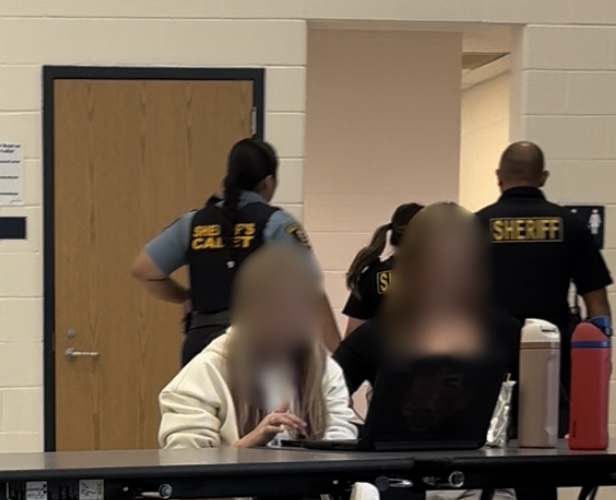President-elect Donald Trump will be inaugurated into office on Jan. 20, 2025, at the U.S. Capitol building after winning the election on Nov. 6, 2024.
Trump won 312 electoral votes against his opponent, Vice President Kamala Harris, who won 226, while also becoming the first Republican to win the popular vote in two decades. Trump won crucial swing states on the promises of mass deportation and a reformation of the U.S. economy.
The election of Trump is historic for a few reasons. Trump is the first convicted felon to win the White House and the second president elected to serve two non-consecutive terms.
On Trump’s official website, he outlines his “20 core promises to make America great again!” These include sealing the border and mass deportation, rebuilding the American economy and changing education into his ideal school vision.
Of the list of 20, Trump’s top two promises are to “1. Seal the border and stop the migrant invasion,” and “2. Carry out the largest deportation operation in American history.”
Trump and his running mate JD Vance’s main campaign initiative is to crack down on immigration, and Vance estimates that they could remove one million people per year. Trump plans to utilize the military, government workers and diplomats to get the job done. Mass deportation would require additional immigration judges, detention beds, officers and other unpredicted expenses.
The American Immigration Council estimates the costs under the assumption that around 20% of undocumented immigrants would self-deport. “The cost of a program aiming to arrest, detain, process and deport one million people per year… would average out to $88 billion annually,” they write.
A poll from AP VoteCast showed that around half of Trump voters viewed the U.S.-Mexico border and inflation as the most influential issues factoring into their voting decisions.
On issues of the economy and taxes, Trump plans to extend his 2017 Tax Cuts and Jobs Act, which cuts corporate tax rates, reducing corporate taxes by 15% and eliminating income taxes on Social Security benefits.
“The Trump campaign has also put forward several trade policy proposals to impose new taxes on imported goods and services including a 10 percent across-the-board tariff on all imports and much higher targeted tariffs,” according to the University of Pennsylvania.
However, some experts believe that the raising of tariffs would lead to global economic instability and higher prices for consumers. With concern over the price of everyday items, economists argue that Trump’s plan will increase those costs. In most cases, consumers end up paying for tariffs.
Trump will also specifically target China in trade policies. His goal is to prevent the import of goods like electronics, steel and pharmaceuticals while also preventing Chinese ownership of U.S. real estate and infrastructure, specifically in the energy and tech sectors.
In addition to immigration and taxes, Trump has also made plans to dismantle the Department of Education.
Trump’s website calls for “[cutting] federal spending for any school pushing critical race theory, radical gender ideology, and other inappropriate racial, sexual, or political content on our children” under promise number 16. And promise number 18 explains Trump’s plans to “deport pro-Hamas radicals and make our college campuses safe and patriotic again.”
The Trump campaign also plans to end tenure laws for teachers and adopt merit pay in its place. This means that teachers would get performance-based pay. Trump has also suggested certifying teachers who demonstrate “patriotic” values or follow the “American way of life.”
Trump is charged with 34 felony counts due to hush money payments made to a sex worker claiming the two had sex. The original Nov. 26 sentencing of Trump is delayed with no current date set to reschedule. How a criminal conviction will affect the Trump presidency is still up in the air.
However, the July Supreme Court ruling in Trump v. The United States stated that presidents have immunity for acts committed in office. This immunity extends to official acts only. The ruling was brought to the court in regards to election interference in 2020 and the 2021 Jan. 6 U.S. Capitol attack. How this will apply to Trump needs to be determined in relation to three unsettled indictments: one in Georgia for election interference, one in Florida for the mishandling of classified documents and one in the District of Columbia for alleged attempts to interfere in the results of the 2020 election.
Trump’s promises on mass deportation and a better economy were the foundation of his campaign. But whether those promises are to be fulfilled is yet to be determined. Millions of eyes will watch on Jan. 20 to see what another Trump presidency holds.











